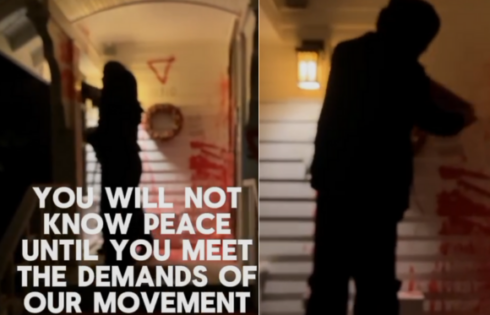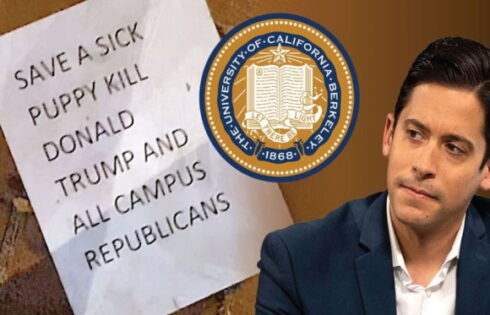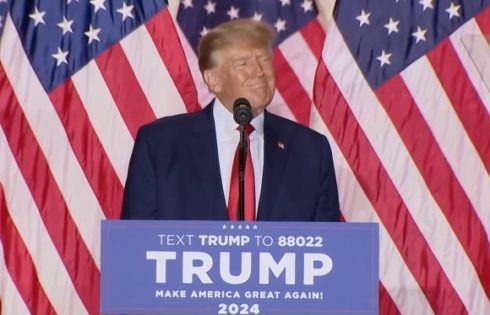
I’ve often wondered if there will ever be a handbook printed on how to, not only navigate the PC (politically correct) hierarchy, but also figure out the seemingly endless contradictions into which academic progressives place themselves.
For example, we constantly hear that diversity is one of every university’s primary goals (if not the primary goal). Yet, also, these institutions are ever on alert to thwart so-called “microaggressions.”
So, students are supposed to value being exposed to diverse points of view, yet at the same time … they need to be protected from them.
John Rosenberg at Phi Beta Cons thus wonders: Is diversity the ultimate microaggression?
First, he quotes Megan McArdle:
During the time when people are supposed to be learning to face an often hard world as adults, and going through the often uncomfortable process of building their intellectual foundations, they are demanding to be sheltered from anything that might challenge their beliefs or recall unpleasant facts to their mind …
Students demanding that campus life be bowdlerized to preserve their peace of mind seem to believe that the best way to deal with trauma is to avoid any mention of it. But [Greg] Lukianoff and [Jonathan] Haidt argue that this is exactly backward; chronic avoidance breeds terror. The current climate on campus is a recipe for producing fearful adults who are going to have difficulty coping in an adult world.
Then he concludes: “The more administrators try to protect fearful and overly sensitive students from ‘microaggressions,’ the more they give the lie to their own arguments for ‘diversity’ …
Check it: Universities say that racial diversity (and that is what “diversity” most often means to academics) exposes others to different points of view; however, minority students then object being made to feel like “spokespeople” for their race. But then … it supposedly is a microaggression to overlook notions of color …
Got it. I think … ?
The Daily Bruin’s Arthur Wang, to his credit, tries to make a bit of sense out of this. But he concentrates on how microaggressions can be so psychologically damaging, while at the same time claiming that conservatives are the ones who minimize the real pain aggressions can cause … because of their focus on the most egregious examples (like protests against a professor for “correcting a student’s capitalization of the word ‘indigenous’”).
Consider what is a microaggression “reality” for some students, according to Wang:
… asking, “Where are you really from?” or commenting that, “Your English is really good for an Asian,” microaggressions force individuals to scrutinize their own actions and identities in ways that privileged groups do not have to – even if we know that the action or statement in question is wrong, irrelevant or absurd.
If people are actually asking such questions without any sort of prefaced context, then yes, it’s absurd as Wang says. (Does anyone actually know somebody who would say that second example totally out of the blue? Really?)
But why would it be a microaggression if, say, upon learning someone is an exchange student, you ask “Where are you from?” or state that his/her English is “really good”? Isn’t that 1) engaging in the diverse learning environment that colleges desire, and 2) being polite?
If those are microaggressions then it’s pretty darn difficult to make a distinction between the examples Wang (and conservatives) agree are worthy of derision, and those he believes are legitimate.
Which brings me back to my opening sentence: Where’s the handbook?
Wang considers similarly, sort of:
People take issue with microaggressions because it is a quintessential articulation of modern-day racism – unseen, unspoken and unaddressed. And like identity politics, there are few definitive methods of delineating what is, or isn’t, a microaggression. A balance needs to be struck in discussing them – a middle ground between claiming that anything and everything can be interpreted as one, and asserting that it’s a myth pulled out of thin air, because it’s neither. Microaggressions need to be tackled as a problem just as dubious applications and efforts to institutionalize a still-developing theory need to be considered carefully.
To which he concludes: “And hopefully, that last sentence wasn’t a microaggression.”
Precisely the point.
So, college attendees, when your fellow students proclaim “step outside of your comfort zone” and “try new things,” be careful. Be very careful.
Like The College Fix on Facebook / Follow us on Twitter
IMAGE: Shutterstock






Please join the conversation about our stories on Facebook, Twitter, Instagram, Reddit, MeWe, Rumble, Gab, Minds and Gettr.